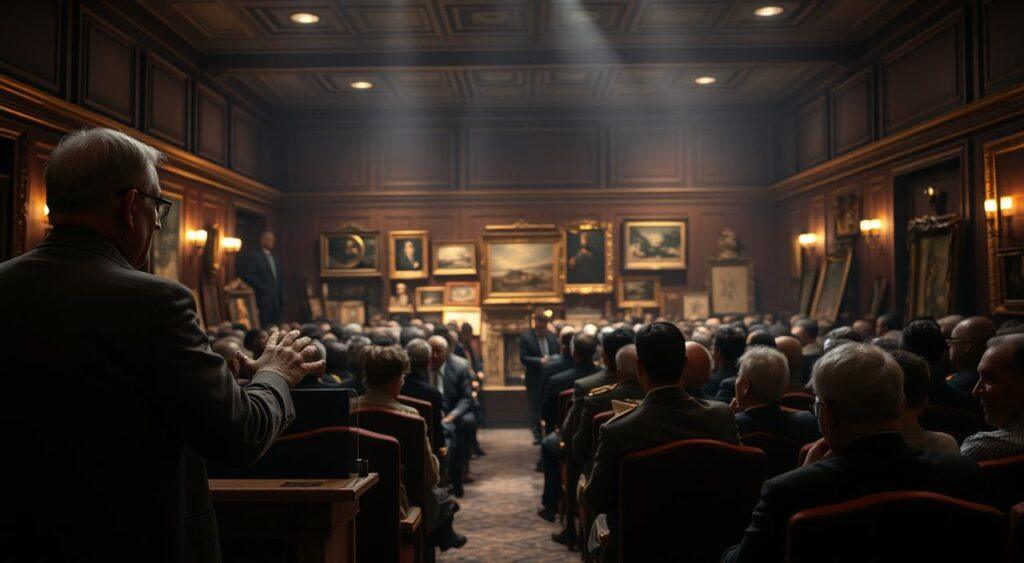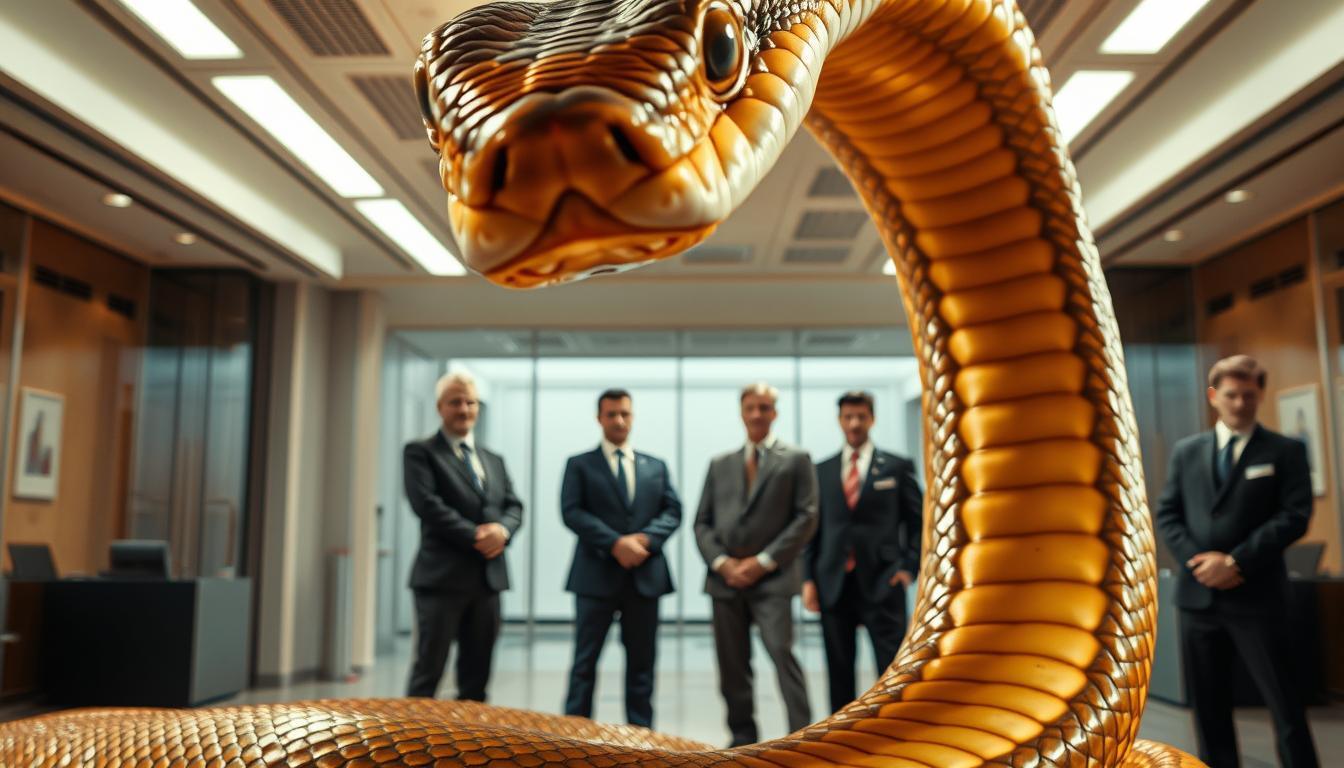Have you ever won a bidding war, only to realize you paid more than the item’s true value? This frustrating experience is called the Winner’s Curse Mental Model – a mental trap where victory in competitive auctions leads to buyer’s remorse.
Imagine two friends bidding on a sealed mystery box. The winner celebrates until they discover the contents are worth far less than their bid. Sound familiar?
This phenomenon isn’t just about garage sales or eBay. In the 1970s, economist Richard Thaler highlighted how oil companies like Acme Oil often overpaid for drilling rights. Why? When multiple bidders compete, the highest offer frequently exceeds an asset’s actual worth. Warren Buffett puts it bluntly: “Be fearful when others are greedy.”
Three key factors drive this curse:
- Limited information about the item’s real value
- Emotional pressure to “win” against rivals
- Overconfidence in personal estimates
From corporate mergers to stock trades, the pattern repeats. Bidders forget a crucial truth: winning an auction often means you valued the item more than anyone else did – including experts. Next time you’re tempted to outbid competitors, ask: Am I paying for prestige… or actual value?
Key Takeaways
- The Winner’s Curse Mental Model occurs when auction winners overpay due to competition pressure
- First documented in oil lease auctions, now seen in business deals and investments
- Limited information and emotional bidding worsen financial risks
- Warren Buffett warns against following “greedy” market behavior
- Strategic bidders set maximum limits before auctions start
- Common in markets where asset values are hard to measure
Intro to the Winners Curse Mental Model

Have you ever felt buyer’s remorse after outbidding others? This common experience lies at the heart of the winner’s curse – where victory in competitive deals often comes with hidden costs. Let’s break down why this happens and how it shaped modern markets.
What Exactly Is This Phenomenon?
Imagine ten people guessing jellybeans in a jar. The highest guess usually overshoots the actual count. Similarly, winning bidders frequently pay more than an item’s true value, which can lead to the winner curse.
Three elements fuel this pattern in the context of value asset evaluations:
- Uncertainty about real worth
- Rush to beat competitors in mergers acquisitions
- Overconfidence in guesses, especially in a winning bid scenario, contributes to this curse
Winners Curse Mental Model: From Oil Fields to Boardrooms
The term gained traction in 1960s energy markets. Companies like Gulf Oil overpaid for drilling rights by 30-50%, as economist Richard Thaler documented. His research showed how heated auctions distort rational pricing.
| Auction Type | Common Risks | Prevention Strategy |
|---|---|---|
| Sealed-Bid | Overestimating hidden value | Use historical price data |
| English (Open) | Emotional bidding wars | Set strict maximum bids |
| Dutch (Descending) | Rushed decisions | Calculate fair price upfront |
Why does this matter today? From eBay listings to corporate mergers, the same forces apply. A 2023 Journal of Economic Behavior study found 68% of auction participants regret their winning bids. How can you avoid becoming part of this statistic?
Auction Dynamics and Game Theory Insights

Why do smart bidders sometimes make costly mistakes? Auctions work like strategic games where every move affects others’ choices. Let’s explore how competition and hidden information shape bidding wars – and how game theory helps navigate them.
Understanding Competitive Bidding
Imagine ten people bidding on a rare baseball card. Each person guesses its value differently. The winner often pays more than the card’s worth. Why? Three factors collide:
- Limited information about the item
- Pressure to outdo competitors
- Fear of losing the deal
Online platforms like eBay see this daily. A 2022 MIT study found 73% of auction winners overpaid by 20%+ in fast-paced sales. Emotional spikes push bids beyond logic.
The Role of Game Theory in Auctions
Game theory studies how people make decisions in competitive situations. In auctions, it predicts:
| Auction Type | Key Risk | Game Theory Strategy |
|---|---|---|
| Sealed-Bid | Overestimating value | Bid 15-30% below max budget |
| Live Auction | Emotional escalation | Use “drop-out” thresholds |
| Reverse Auction | Underpricing | Set minimum acceptable margins |
Advanced bidders use tools like Bayesian updates. These adjust bids based on rivals’ behavior. For example, oil companies reduced overpayment by 40% after adopting simulation models, per Energy Economics Journal.
What if you knew everyone’s maximum bid? You’d still need a risk buffer. Experts recommend cutting initial bids by 10-25% to mitigate winner curse. How would your strategy change with this insight?
Real-World Examples and Case Studies

What do oil giants and eBay shoppers have in common? Both groups often fall victim to paying more than something’s true value in competitive transactions, which can lead to the winner curse.
Let’s explore how this pattern plays out across markets and industries, highlighting the associated risks.
Lessons from Oil and Gas Auctions
Richard Thaler’s research exposed how companies like Acme Oil lost millions in drilling rights auctions. In one 1979 auction, 12 firms bid on Gulf Coast sites. The winner paid 220% more than the next-highest bidder – only to find limited oil reserves.
Why does this happen? Bidders face:
- Incomplete information about underground resources
- Pressure to secure energy supplies
- Optimism bias in geological estimates
Corporate Mergers and Online Auctions
Tata Steel’s $12 billion acquisition of Corus in 2007 became a textbook example. The Indian company outbid Brazil’s CSN but later faced financial strain as steel prices dropped. Similar stories unfold daily on eBay:
| Platform | Common Mistake | Average Overpayment |
|---|---|---|
| eBay Motors | Bidding wars for rare cars | 18-27% |
| StockX | Hype-driven sneaker sales | 33% above retail |
| Government Auctions | Underestimating repair costs | 41% (HUD study) |
A 2021 Harvard Business Review study found 58% of corporate acquisitions destroy shareholder value. How can you avoid this? Always ask: “What do others know that I don’t?” before placing your next bid.
Exploring The Winners Curse Mental Model

Why do seasoned investors sometimes make shockingly bad deals in the auction market? The answer lies in our brain’s wiring.
When adrenaline mixes with competition, even experts become vulnerable to the winner curse and mental shortcuts that distort reality, increasing their risk when evaluating an asset. This phenomenon can be understood through easy statistical analysis.
Psychological Factors and Cognitive Biases
Sarah Lee, a real estate investor, once paid $1.2M for a property appraised at $950K. “I got caught up beating three other bidders,” she admits. Her story reveals three common traps:
- Overconfidence: 68% of bidders in a 2018 Yale study believed their estimates were more accurate than others’
- Herd mentality: Bids increase 40% faster when participants see others actively competing
- Anchoring effect: Initial price suggestions sway final offers by 19-33% (Journal of Behavioral Finance)
Charlie Munger famously noted: “It’s remarkable how much long-term advantage people like us have gotten by trying to be consistently not stupid.” Yet in heated auctions, smart people often ignore this wisdom.
Implications in Corporate and Investment Scenarios
Tech giant acquisitions show how these biases play out. When Microsoft bought LinkedIn for $26.2B, critics questioned the price. Years later, integration challenges proved some doubts valid. Key questions for decision-makers:
- Are we valuing potential or panic-buying?
- What hidden costs might rivals know about?
- Does this align with our 5-year roadmap?
A 2022 McKinsey report found 43% of mergers fail due to overestimation of synergies. Warren Buffett’s advice cuts through the noise: “Price is what you pay. Value is what you get.” Regular reality checks against market data help maintain this crucial distinction.
Winners Curse Mental Model Mitigation

What separates successful bidders from those who regret their wins? Preparation beats panic every time. Smart players treat auctions like chess – thinking three moves ahead while others scramble for quick victories.
Risk Assessment and Due Diligence Techniques
Oil companies learned this the hard way. After losing millions in drilling rights auctions, firms like Shell adopted statistical models to calculate true asset value. Here’s how you can apply their approach:
First, research historical prices for similar items. A 2023 study showed bidders who analyzed past sales reduced overpayment by 37%. Second, consult independent experts – their estimates often differ from crowd opinions. Third, calculate worst-case scenarios. What if the item needs repairs? What if market conditions change?
Practical Bidding Methods to Control Overpayment
Imagine you’re eyeing a rare comic book auction. Set a walk-away price before bidding starts – and stick to it. Warren Buffett’s team uses this tactic in stock markets, refusing to chase rising prices.
| Strategy | Best For | Result |
|---|---|---|
| Incremental Bids | Online auctions | Limits emotional jumps |
| Reserve Prices | Corporate deals | Prevents budget breaches |
| Blind Bidding | Government contracts | Reduces rivalry effects |
Tech giants like Google avoid bidding wars for startups by using secret walkaway thresholds. Their secret? Treat every bid like a math problem, not a trophy hunt. How thorough is your homework before hitting “place bid”?
Practical Auction Decision-Making Tips

Imagine preparing for an auction like packing for a hurricane – smart choices today prevent regrets tomorrow. Savvy bidders combine preparation with discipline to avoid overpaying. Let’s explore two proven methods to keep your bids grounded in reality.
Establishing Reserve Prices
Set your maximum bid before the auction starts – and treat it like a concrete wall. A 2023 Harvard study found bidders with fixed limits overpaid 54% less than impulsive peers. How to set yours?
- Research recent sales of similar items
- Subtract 15-20% for unexpected costs
- Add a 5% buffer for must-have items
Homebuyers in competitive markets use this strategy effectively. When 12 buyers wanted a Seattle condo last year, the winner stuck to their $620K ceiling while others bid up to $710K. The secret? Knowing when to walk away.
| Reserve Price Strategy | Use Case | Success Rate |
|---|---|---|
| Fixed Percentage Below Market | Real Estate | 68% (National Realtors Association) |
| Cost-Plus Analysis | Business Equipment | 82% effective |
| Competitor Bid Forecasting | Online Auctions | Reduces overpayment by 41% |
Leveraging Economic Models for Better Decisions
MIT researchers found bidders using game theory models improved outcomes by 33%. These tools help answer critical questions: What’s the item’s true value if three others want it? How does bid timing affect final prices?
Consider these approaches used by Fortune 500 companies:
- Nash Equilibrium: Predict rivals’ maximum bids
- Black-Scholes: Value uncertain future returns
- Monte Carlo Simulations: Test 1,000+ bidding scenarios
A tech startup recently avoided overpaying for a competitor by using regression analysis. They discovered the target’s user growth was slowing – data others ignored in the bidding frenzy.
Modern tools like AI-powered auction assistants now analyze market trends in real-time. One app reduced overbidding by 29% in beta tests by highlighting emotional spending patterns. Does your bid reflect actual worth or just the heat of competition?
Conclusion
Navigating competitive markets requires balancing strategy with self-awareness. The winner’s curse reminds us that victory often comes at a hidden cost – paying more than an item’s true value in heated auctions.
From oil fields to online marketplaces, this pattern persists when emotion overrides careful analysis.
Smart bidders succeed by setting strict limits and treating auctions as math problems, not ego contests. Tools like reserve prices and game theory models help separate facts from rivalry-fueled fantasies. Remember: every bid reflects both an item’s worth and the thrill of competition.
Three safeguards protect against overpayment:
- Researching historical prices for similar assets
- Consulting neutral experts before bidding
- Using simulations to test multiple scenarios
Warren Buffett’s advice rings true here – “Value is what you get” when you ignore the noise. Whether bidding on eBay or corporate acquisitions, disciplined preparation beats impulsive decisions. How will you adjust your approach before the next auction starts?
Keep refining your strategies through ongoing learning. Markets evolve, but the principles of measured risk-taking remain constant. Stay curious, stay cautious, and let data – not desperation – guide your bids.


